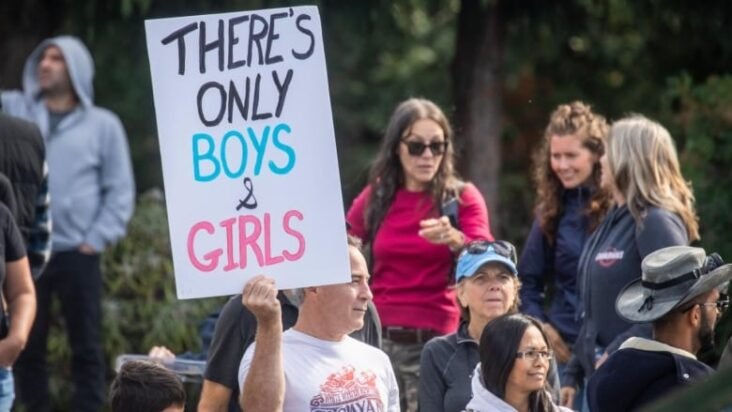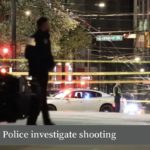
Police could ticket, arrest people behaving disruptively in ‘access zones,’ if legislation approved
British Columbia’s provincial government has proposed new legislation to ban disruptive protests outside schools in the wake of more than a dozen “alarming” incidents of anti-SOGI demonstrations on school grounds.
The law, tabled in the legislature Wednesday, would allow the provincial cabinet to prohibit disruptive behaviour, including “aggressive” protests, within 20 metres of a school via regulation.
Inside these “access zones,” police could arrest or ticket anyone who impedes entry to school grounds, disrupts school-related activities or poses a threat to the physical or mental safety of students or staff, including during school board meetings, according to Premier David Eby.
“They’re really things we shouldn’t need a law for, but unfortunately, we do,” he told reporters in Victoria on Wednesday, noting the law is based off the model used to ban protests outside of hospitals during the COVID-19 pandemic.
Eby says the province has counted 18 major disruptions at schools across the province since the start of the school year, and several more before September, including demonstrators banging on classroom windows at a school in Burns Lake.
“[It’s] concerning, frightening, alarming and it makes school feel like a not safe place,” he said.
Eby said all of the incidents the province has counted involved demonstrators against SOGI 123— the province’s optional educational resource for teaching about sexual orientation and gender identity — but said the law is content-neutral and will be applied equally regardless of the cause.

On Wednesday, B.C. Conservative Leader John Rustad said “there is no hate” in anti-SOGI protests and criticized the proposed limits on protests.
“The issue is around parental rights,” said Rustad, who has long advocated for SOGI to be removed from schools.
“I’m finding it very curious that government seems focused on parents who are concerned about their children in schools … and yet these other protests, which are focused on, quite frankly, hate, are allowed to go forward with no word from this government,” he said, referring to protests calling for a ceasefire in the Israel-Hamas war.
Attorney General Niki Sharma says the law is designed to be nimble and flexible to ensure rights to freedom of speech and peaceful protest are protected in balance with the safety of students and school staff.
“Access zones are not about restricting free speech,” she said. “Just because you have the right to protest, doesn’t mean you have the right to intimidate and harass.”
With files from Meera Bains





